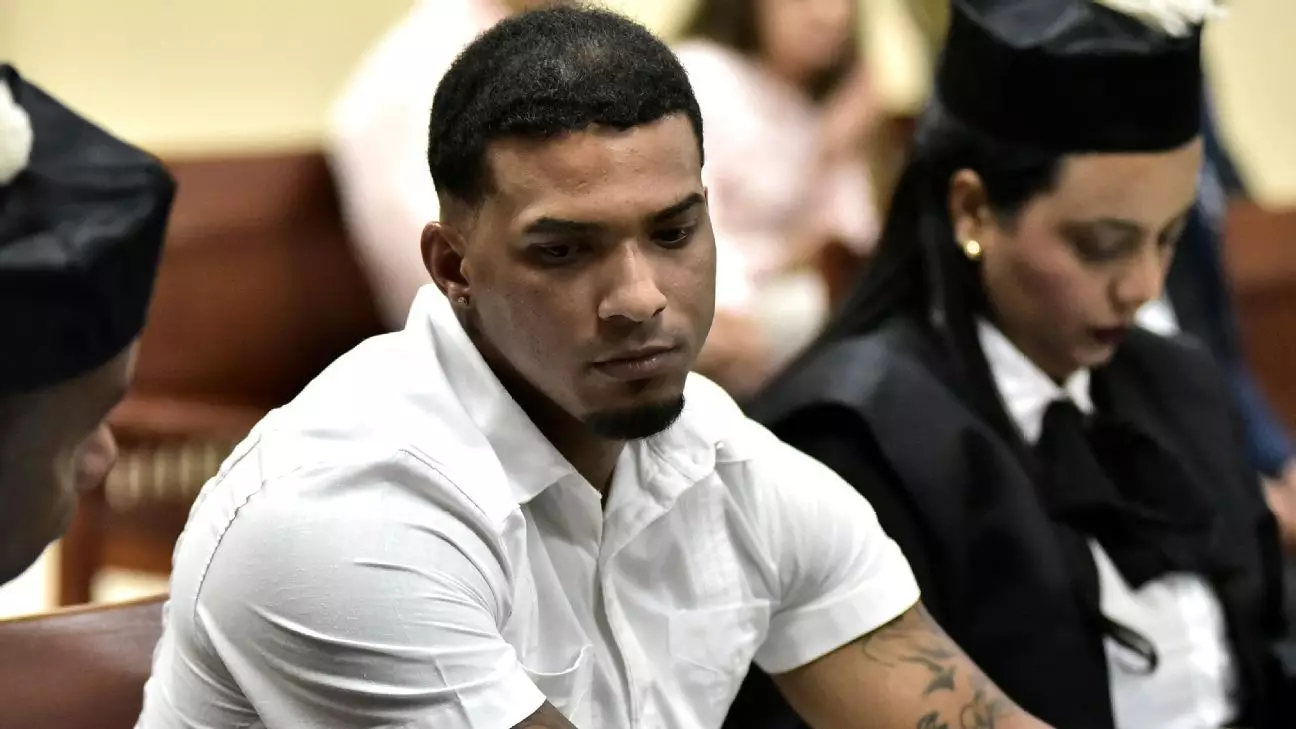Wander Franco seemed poised to become one of Major League Baseball’s brightest stars. A prodigy known for his remarkable skills on the diamond, he was signed by the Tampa Bay Rays at just 16 years old for an eye-popping $3.8 million. By the time he made his MLB debut at 20, he had already captured the attention of fans and analysts alike, rapidly solidifying his place as one of baseball’s top prospects. However, the shimmering facade of stardom has been tragically marred. Franco’s career has taken an irreparable turn following accusations that have thrust him into a nightmarish legal battle.
Breaking the Trust
The gravity of the allegations against Franco is haunting. Convicted of engaging in a sexual relationship with a 14-year-old girl when he was 21, he received a suspended two-year prison sentence in the Dominican Republic. While the law provided an opportunity for leniency, given the judge’s decision, the mere fact that he has been found guilty raises substantial questions about his character, moral compass, and the values he upholds. This case doesn’t just reflect on Franco; it underscores systemic issues prevalent in professional sports, where young athletes often find themselves swept up in their own fame, sometimes with devastating consequences.
The culpability doesn’t lie solely with Franco; it extends to his accomplices and the adult figures in the lives of these vulnerable minors. The girl’s mother, who was sentenced to ten years for trafficking her daughter, signifies a disturbing trend where parental figures exploit their children for financial gain, perverting the very relationships that should protect and nurture.
The Consequences of Actions
The ramifications of Franco’s conviction extend beyond the immediate legal punishments. Currently, Franco finds himself on Major League Baseball’s restricted list, which bars him from participation during an uncertain period that will be defined by investigations and further disciplinary measures. This status raises the grim possibility of never returning to the field. The stakes are particularly high given that his massive 11-year, $182 million contract hinges on eligibility for a work visa; should he fail to secure that crucial paperwork, he risks remaining indefinitely sidelined. The situation showcases the stark realities athletes face when they breach societal and legal boundaries; talent alone cannot shield them from the fallout.
Despite all eyes turning to Franco, Major League Baseball must also confront its role in maintaining the integrity and safety of the sport. The league has stated its commitment to a strict Domestic Violence, Sexual Assault, and Child Abuse Policy. Yet this rhetoric can ring hollow in light of the serious allegations against one of its rising stars. Progressive action is needed within sports organizations to educate their players about the ramifications of their actions and develop a culture of accountability for all athletes.
Power Dynamics and Repercussions
The fact that Franco could allegedly spend significant sums of money to facilitate his relationship with the minor raises another vital conversation: the power dynamics involved in sexual relationships between adults and minors, especially when wealth and fame are in the mix. It is unsettling to think what the repercussions of such a relationship might look like, illustrating a significant gap in comprehension concerning consent and exploitation. The use of luxury items and cash often becomes another layer in the manipulation of power, where economic disparity is weaponized to exert influence over vulnerable individuals.
Moreover, society’s reaction to legal situations involving celebrities can often hinge on biases toward fame and success. There’s a tendency to overlook troubling behaviors until the public outcry becomes unbearable. In Franco’s case, the social media discourse erupted with allegations before the legal battle proceeded, hinting at a tumultuous interplay between public perception and judicial proceedings.
The Future of Accountability in Sports
As this saga continues to unfold, it will serve as a critical test case for how sports organizations handle notable figures charged with serious crimes. Transparency, accountability, and genuine reform will be necessary to rectify what has been an ongoing issue within professional athletics. The hope is that this case catalyzes meaningful changes not only in MLB but across sports industries at large, addressing the need for unwavering support systems for victims and stronger preventative measures against abuse.
The Wander Franco case transcends baseball; it is an urgent call for introspection about ethics, responsibility, and the profound effects of fame. An industry that breathes life into young athletes must safeguard those at risk from exploitative dynamics, ensuring the integrity and future of the sport itself.


Leave a Reply